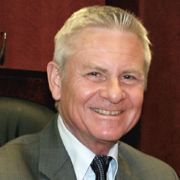David Nunan, Ph.D
Director, David Nunan TESOL Institute

Master of Arts in TESOL Designer
Senior Professor: TESOL
Dr. David Nunan is the Director of the Anaheim University David Nunan TESOL Institute and Senior Professor of TESOL for the Anaheim University Graduate School of Education. He was the founding Dean of the Anaheim University Graduate School of Education and previously served as President of Anaheim University from 2006 to 2008 and as Vice-President for Academic Affairs from 2008 to 2013. Dr. David Nunan is former president of TESOL, the world's largest language-teaching organization. Dr. Nunan...
Learn More
Jimalee Sowell, M.A.
 Jimalee Sowell, MA
Jimalee Sowell, MA
Certificate Program Coordinator, David Nunan TESOL Institute
Instructor: TESOL
Jimalee Sowell is a Ph.D. candidate in Composition and Applied Linguistics at Indiana University of Pennsylvania and holds an MATESOL degree from SIT Graduate Institute. Ms. Sowell has worked as an English language teacher and teacher trainer since 2000. Ms. Sowell has worked in a variety of contexts including South Korea, Malaysia, Bangladesh, Ecuador, Uganda, Cambodia, Vietnam, and Côte d’Ivoire. Her research interests include writing instruction, peace education, genre analysis, disability...
Learn MoreThe 15-week Online Certificate in Teaching English to Speakers of Other Languages (TESOL) program offers students the opportunity of developing a solid pedagogical foundation through instruction in the following areas:
-
- Language teaching methodology
- Listening
- Speaking
- Reading
- Writing
- Pronunciation
- Vocabulary
- Grammar
- Discourse
- Content-based instruction
- Using coursebooks
- Computer-assisted language learning
- Learning styles and strategies
- Learner autonomy in the classroom
- Classroom-based assessment
- Cross-cultural communication
Also, in order to assist you allocate your time, the course guide contains a weekly breakdown. It is a suggestion only, but one that students are advised to adhere to as closely as possible to keep up with the demanding schedule of the course. Below is an example:
| Weekly Study Format: |
|
150 min. video lecture & PowerPoint presentation (watching video, reviewing PowerPoint, taking notes, reflecting on notes) |
| 150 min. background reading |
| 120 min. preparation of responses to discussion questions and tasks |
| 90 min. discussion board |
| 30 min. online quiz |
9 hours total per week
Duration: 15 weeks x 9 hours per week = 135 hour course
The objectives of the TESOL Certificate program are:
- To introduce TESOL theory, research and practice to relatively inexperienced or unqualified teachers that is accessible and that is supported by a wide range of teaching materials, teaching ideas and classroom extracts
- To encourage self-direction on the part of students through the provision of follow up resources and ideas
- To develop the necessary knowledge, attitudes and skills to enable those students who desire it to go on to higher study
- To present content through a range of print, audio and video media
- To foster the development of higher level thinking skills such as the critical evaluation of pedagogical materials
Upon successful completion of the TESOL Certificate program, students will be able to:
- discuss some of the research findings that have influenced language teaching methodology.
- create instructional sequences that incorporate the pretask, task, and follow-up cycle.
- demonstrate familiarity with a range of techniques for teaching listening, speaking, reading, writing, pronunciation, and grammar.
- demonstrate familiarity with cultural patterns at the linguistic, behavior, and content levels, and discuss how cross-cultural (mis)communication occurs.
- design and edit language teaching dialogues and other spoken materials so that they are natural and realistic and focus more on discourse.
- understand how different forms of content-based instruction apply to different student populations and instructional settings.
- devise ways to adapt or supplement an activity for a specific group of learners by introducing supplementary material.
- explain the importance of consciousness-raising activities, receptive activities, and productive activities when teaching about language differences.
- explain how Computer-Assisted Language Learning (CALL) can be used as whole class and small group activities.
- identify major learning styles and strategies and explain why they are important considerations in second language teaching.
- organize a project or series of classroom activities so that the students make choices and decisions about their learning.
- develop classroom assessment tasks that are linked to learning outcomes.
![]() The steps below are general guidelines for joining a program at Anaheim University. Just complete the following steps and, if approved, become part of Anaheim University's global community within 2 weeks.
The steps below are general guidelines for joining a program at Anaheim University. Just complete the following steps and, if approved, become part of Anaheim University's global community within 2 weeks.
|
Read thoroughly through the pages of our website and catalog |
|
|
Click here to submit your application online
|
|
|
The following documents are required for admission:
†††† DBA Only
*scanned copies are accepted to expedite application process while waiting for originals to arrive in the mail
Documents can be uploaded as part of the online application form, emailed to This email address is being protected from spambots. You need JavaScript enabled to view it. or posted in the mail to the address in Step 5. The complete list of Entrance Requirements for each program can be found here.
|
|
> CLICK HERE FOR THE NEXT 3 STEPS |
